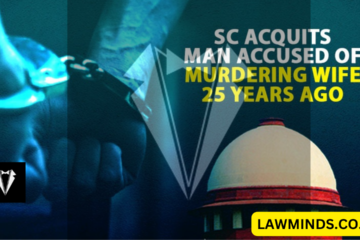
SUPREME COURT
- The Supreme Court dismissed a plea seeking the transfer of the ongoing Securities Exchange Board of India (SEBI) investigation into the Adani Hindenburg controversy to a Special Investigation Team (SIT) or the Central Bureau of Investigation (CBI), citing a lack of a valid basis. Chief Justice of India D Y Chandrachud, along with Justices J B Pardiwala and Manoj Misra, directed SEBI to conclude its inquiry within three months.
- A Congress leader and an advocate have separately challenged the validity of a new law, enacted in December 2023, pertaining to the appointment of the Chief Election Commissioner and Election Commissioners. The Supreme Court will examine the law, which replaces the Chief Justice of India with a Minister in the committee responsible for selecting the poll panel.
- The Supreme Court declined to entertain a petition against a proposed signature campaign in Tamil Nadu protesting the National Eligibility cum Entrance Test (NEET). The court highlighted the students’ awareness of political motives behind the campaign, initiated by Tamil Nadu Minister Udayanidhi Stalin, and refused to intervene.
- A lawyer has approached the Supreme Court seeking a stay on the implementation of three recently passed criminal laws: Bharatiya Nyaya Sanhita 2023, Bharatiya Nagrik Suraksha Sanhita 2023, and Bharatiya Sakshya Adhiniyam 2023. The petitioner, Vishal Tiwari, in a Public Interest Litigation (PIL), urged the court to direct the formation of an expert committee to assess the viability of these laws.
- The Supreme Court has requested the Centre to provide information on safety measures, including the implementation of the anti-collision system ‘Kavach,’ to ensure the safety of railway passengers and prevent accidents. Justices Surya Kant and K V Vishwanathan directed Attorney General R Venkatramani to respond within four weeks, based on a PIL filed by advocate Vishal Tiwari.
HIGH COURTS
- The Bombay High Court ruled that following and abusing a woman does not fall under the offense of Section 354 of the Indian Penal Code, which pertains to assaulting or using criminal force against a woman with the intent to outrage her modesty. Justice Anil L Pansare stated that such acts may be annoying but do not shock the sense of decency of a woman.
- The Calcutta High Court emphasized that social boycott has no place in a civilized society while hearing a case where a family was boycotted for objecting to the illegal construction of a temple. Justice Jay Sengupta stressed that any social boycott should be dealt with strictly by the administration.
- The Delhi High Court ruled in favor of Pharmacyclics LLC and Johnson & Johnson Pvt Ltd in a patent infringement suit concerning the anti-cancer drug Ibrutinib (Imbruvica). The court granted interim relief, restraining five entities from producing drugs that violate Pharmacyclis’ manufacturing and marketing rights for the drug.
- The Orissa High Court granted BJD’s Lok Sabha MP Anubhav Mohanty a decree of divorce on grounds of mental cruelty, noting the absence of physical intimacy between him and his wife Varsha Priyadarshini. Justices Arindam Sinha and Sibo Sankar Mishra delivered the ruling.
- The Delhi High Court closed criminal contempt proceedings against author Anand Ranganathan and others, initiated over remarks allegedly targeting Justice (Retd.) S Muralidhar in 2018. The court deemed the continuation of proceedings as a “sheer wastage of time,” considering the unconditional apologies tendered by the initiators and the expressed respect for the court by other respondents.



